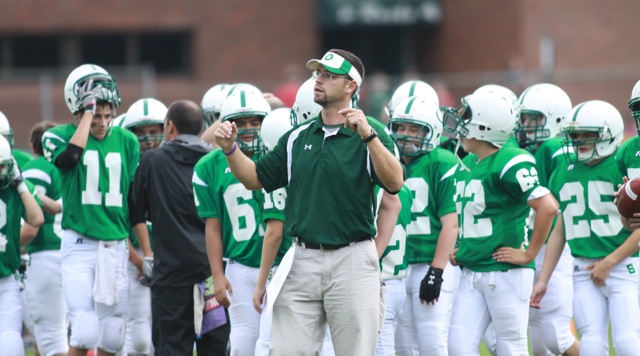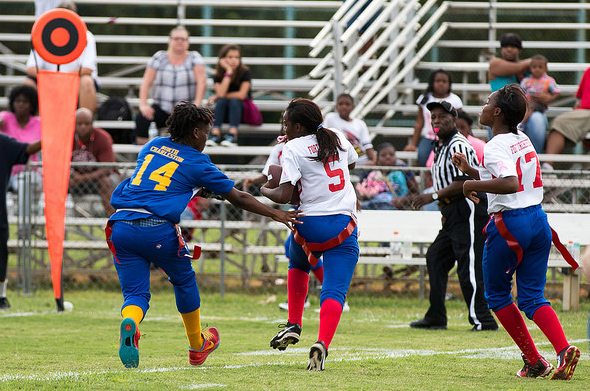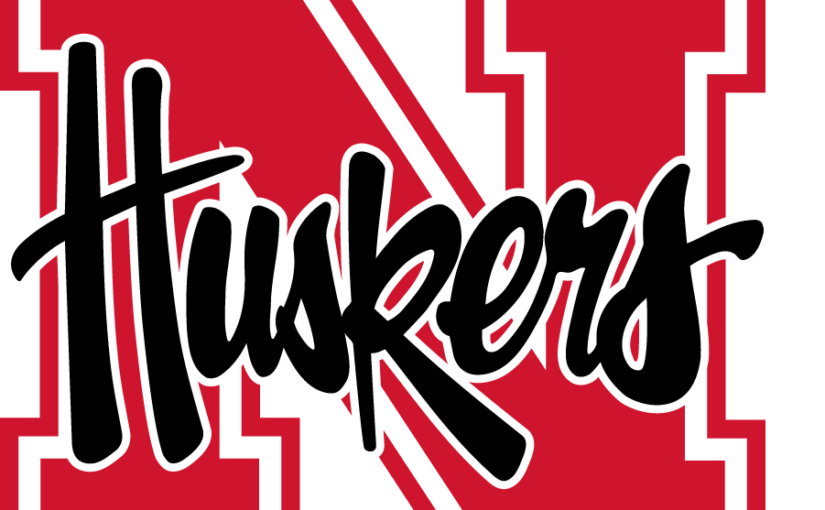Mentoring the coaches in your program
Since mentoring has never been a generic art form, there are several things you may want to consider when implementing or restructuring a mentoring program for your coaches.
It must fit into the structure and culture of your program, school, and community while working within the confines of your league and state regulations.
 Though your mentoring process may be organized and structured, it should also include various individual, subtle, and supportive efforts.
Though your mentoring process may be organized and structured, it should also include various individual, subtle, and supportive efforts.
Since coaches and the athletic director have limited time to accomplish some of the goals of mentoring, multiple approaches may be absolutely necessary in order to be successful.
There is also another consideration. In your role as A.D., you are the boss of the coaches even though we don’t like this term in education. It is up to the A.D. to see that the coaches are in compliance and accountable for regulations and their responsibilities. Mentoring, therefore, isn’t an extra duty or a frill. It is a necessary requirement of the position.
For me, it all starts with our pre-season coaches meetings – one before each season. Since most of our coaches do coach more than one season, this is simply something that has to be done each season, with everyone being spurred to be as efficient as possible.
Why we meet
While I will answer questions, because we don’t want any misunderstanding or mistakes, this is not an open discussion session and everything listed will be covered. It actually is a business meeting with five stated objectives. Very early on the agenda, I cover the five reasons why we meet.
1. To present new material and information.
2. To emphasize points of potential problems (risk management and liability).
3. To provide reminders for areas in which improvement is needed.
4. To put the entire staff on the same page.
5. To provide a basis for and help with accountability.
The next item on the agenda is a recommendation for our coaches. We want them to keep a copy of the agenda and the accompanying handouts in a binder or folder. This helps ensure against loss and that fewer mistakes are made. Obviously, the pre-season coaches’ meeting may be the most important part of our mentoring program.
Email memo
Next in importance is the e-mail memo or message. There is no doubt that e-mail has changed communication for the A.D. in the last few years and has become an invaluable aid in terms of mentoring your coaches.
With separate distribution lists, I can quickly contact all coaches in any particular season and can also communicate with the entire coaching staff in a matter of seconds.
I use these electronic messages for reminders of due dates and responsibilities, to introduce new developments, and for motivational and educational purposes.
I often end my message with, “If you have any questions, please see me.” This can give a coach some one-on-one counseling if needed.
Another one of the many great features of e-mail communication is that a time and date is always an integral part of it. This little aspect can aid accountability and documentation should it be needed.
While I initially tried to save e-mail memos on my computer, it got too confusing even with completed Subject Lines. As a result, I now save hardcopies by either date or topic. These copies are filed in labeled binders or individual folders, depending upon what may be needed.
E-mail also provides the opportunity to attach documents, articles, photos and diagrams, all of which can and will help with the mentoring approach. I often see an article in a newspaper or magazine that may highlight a topic or aspect of coaching that I think would be invaluable for our staff.
By first scanning the article onto my computer, it can easily be sent via an attachment with a quick message to our coaches. We’ve covered various topics such as hazing, team rules, drinking, and steroid abuse, sportsmanship, and eligibility issues to mention just a few.
As many of you know, some newspapers, magazines and their web sites also now have a feature in which you can e-mail an article posted on their site. With these articles, I can directly send something valuable to an individual coach.
If I can’t use a distribution list with one of these sites, I’ll provide the address (URL) for the site and suggest that our coaches visit it. This mentoring approach can provide valuable information involving the most recent topical issues.
In addition to the structured approach, we also incorporate some subtle, individualized efforts. One of the reasons for this is that we have a diverse group of coaches ranging from veterans of many years to raw rookies.
While they all may need some mentoring, the scope, depth and even the timing may differ greatly. Coaches sometimes need a little encouragement, a confidant, or just a friend with whom to vent occasionally.
Regardless of the experience level, whenever a coach makes a mistake or becomes involved with a problem, it will necessitate an individual meeting. Even though I personally have a long learning curve, I have learned some patience over the years and this is important when dealing with a problem.
It is extremely important not to jump to any sudden conclusions, to listen to all sides – and there are usually more than even two sides to most disputes – and to offer some good practical advice.
Another advantage of being an experienced A.D. is that it makes you realize that most individuals do not intentionally make a mistake. Errors are often due to inexperience, unbridled enthusiasm, and taking action before thinking things through.
This is really where your wisdom can come in handy and why your one-on-one counseling is so extremely valuable.
Anticipation is another key in mentoring inexperienced coaches and it is also vital with long-time coaches particularly when new procedures have to be instituted. Last winter, our county instituted an entirely new eligibility process, which was not only time intensive, but also involved new procedures.
In order to eliminate as many mistakes and problems as possible, which ultimately would create less headaches for me, I felt that it was important to effectively communicate with our coaches.
First, I tried to go step-by-step in the process and explain what they would have to do. For example, the double-sided physical form that an athlete must turn in has three places in which a date needs to be entered, but only one can be listed and used as the official date. This obviously needs to be clearly explained to our coaches.
As the coaches submitted their eligibility forms, I encountered some problems. Using these problems as examples, I’d then get back to the entire group with a few practical hints. Without mentioning anyone’s name, this can be a great learning tool for the others.
 Another good technique is situational mentoring. This is where you pair a new coach who needs help with a veteran or another resource person. This can give the inexperienced coach one-on-one assistance in a specific area of need.
Another good technique is situational mentoring. This is where you pair a new coach who needs help with a veteran or another resource person. This can give the inexperienced coach one-on-one assistance in a specific area of need.
While I’ve heard of other athletic directors who routinely pair all new coaches with an existing staff member, there is no assurance that this match will provide all of the necessary answers. Since some long-time coaches may not be suited to being a mentor, it is best, we think, to selectively suggest a veteran to a new coach who can benefit.
For example, we hired a new, young coach who had all of the desired qualities – enthusiasm, positive, understood kids, was dependable. The young lady was very worried, however, because this was her first coaching position and she wasn’t sure how to plan her first few practice sessions and what skills and drills to emphasize.
After reassuring our novice coach that she would do a great job, I told her that we had an answer for her angst. I offered the phone number of our former coach and told her to call. Our former coach had a great background and was very willing to share all of his accumulated knowledge – including drills, skill instruction and even insight with the returning players.
This was a perfect mentoring marriage – our new coach getting the help she needed and our former coach helping the program that he had built.
Mentoring your coaches is an intensive, on-going challenge. The more that you can draw upon your experience, particularly regarding your setting and community, the better prepared that your coaches should be.
As with many of our responsibilities as an athletic director, we should constantly be looking for new, different, and unique approaches.





